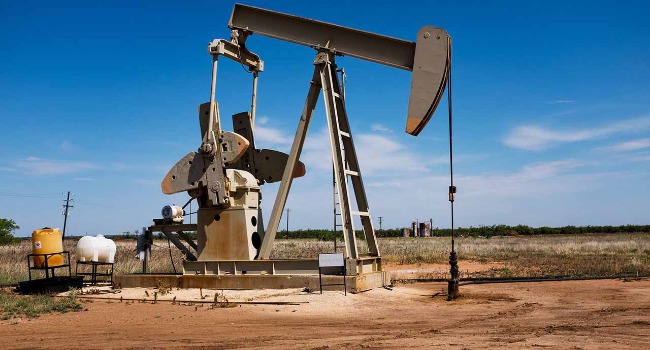Nigeria regains number 1 position in crude oil production in Africa as production hit 1.6 bpd
Nigeria regained and sustained its position as the largest oil producer in Africa for two straight months, as it pumped 1.235 million barrels per day (bpd) in December, according to the Organization of the Petroleum Exporting Countries (OPEC) data.
The latest monthly oil market report released by OPEC on Tuesday shows that Nigeria’s oil output increased by 50,000 bpd, based on direct communication.
Last month, Timipre Sylva, the former minister of state petroleum resources, said that improved security surveillance along major crude oil pipelines is helping to shore up oil production from about 900,000 barrels per day to between 1.4 and 1.6 million barrels.
The minister said oil majors in the country drastically cut down production due to massive vandalism and theft of crude oil in the Niger Delta region by criminal elements.
Mele Kyari, group chief executive officer, Nigerian National Petroleum Company (NNPC) Limited, at the 13th Global UAE Energy Forum, said that by the end of December Nigeria was pumping 1.519 million bpd.
In December, Bala Wunti, chief investment officer, NNPC said the return of the Forcados and partial restoration of the Trans Niger Pipeline (TNP) increased the country’s oil production to 1.6 million bpd as of December.
The report for December revealed that Angola’s oil production stood at 1.088 million bpd, while Algeria pumped 1.01 million bpd, based on direct communication.
This is few thousand short of the 1.8 million barrels per day quota allocated to Nigeria by the organization of petroleum exporting countries, OPEC.
NNPCL’s group chief executive officer Mr Mele Kyari who was represented by Mr Bala Wunti, Head Upstream investment NNPCL revealed this at a stakeholders meeting.
Mr Wunti credited the recovery of production from what it was in July 2020 to the current 1.67 million barrels per day to the implementation of the deter destroy and recover policy.
He said the country ramped up production by collaborating with security agencies, regulators, oil-producing communities and other stakeholders to curb oil theft.
Wunti also noted that other strategies that were deployed are establishment of the Central Command in Control Center for Effective monitoring and coordination.
Others according to him are the launch of the whistle blower portal and crude oil validation portal as well as the deployment of surveillance tools and the fight against oil theft and vandalism.
The elated Kyari said Nigeria is on course to achieve an oil production level of 1.8 million barrels per day in the next two to three months.
The development suggests that the Nigerian government’s crackdown on oil thieves has started to yield results.
Kyari expressed optimism that the company would continue to perform well despite the challenges, citing peers in other countries who had declared $9 billion in profits.
OPEC uses secondary sources to monitor its oil output, but also publishes a table of figures submitted by its member countries.
The 13-member oil cartel also revealed in the report that Saudi Arabia lost 32,000 bpd last month; the highest loss among its OPEC peers.
Data from the upstream regulatory body shows that the country’s oil output increased by 32 percent from 937,766 bpd in September last year.
According to secondary sources, total OPEC-13 crude oil production averaged 28.97 million bpd in December 2022, higher by 91,000 bpd month-on-month.
“Crude oil output increased mainly in Nigeria, Angola, Libya and Venezuela, while production in Kuwait, Congo and Algeria declined,” OPEC said.
Preliminary data indicates that global liquids production in December increased by 0.3 million bpd to an average of 101.7 million bpd compared with the previous month.
“Non-OPEC liquids production (including OPEC NGLs) is estimated to have increased month-on-month in December by 0.2 million bpd to average 72.8 million bpd. This was higher by 2.8 million bpd year-on-year,” the 13-member oil cartel said.
“The share of OPEC crude oil in total global production remained unchanged at 28.5 percent in December, compared with the previous month.”
According to OPEC, estimates are based on preliminary data for non-OPEC supply, OPEC NGLs and non-conventional oil, while assessments for OPEC crude production are based on secondary sources.




